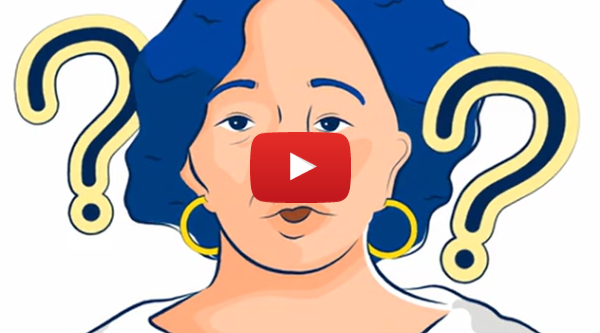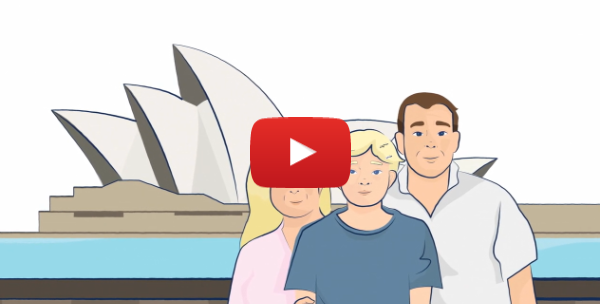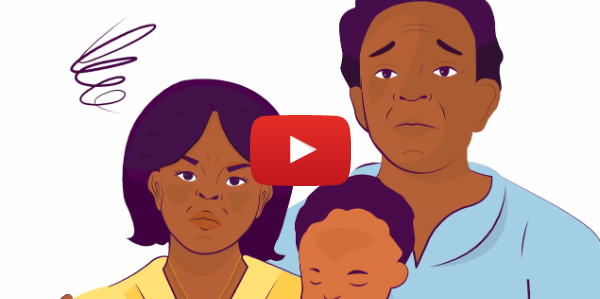|
|
|
|
|
Hi RVA Supporter,
With the Australian Government-funded Rare Disease Awareness, Education, Support and Training (RArEST) Project ending on 30 June, I encourage all stakeholders to familiarise themselves with the deliverables and share the resources with their networks far and wide. You’ll find the RArEST Project resources on RVA’s website. A collaboration between Rare Voices Australia (RVA), the University of New South Wales, the University of Western Australia and Macquarie University, the RArEST Project developed and delivered rare disease awareness resources, education, support and training. I’d like to thank the RArEST Project Stakeholder Reference Group and the Australian Rare Disease Organisations Community of Practice for your time, effort, enthusiasm and invaluable input. Many thanks also to the entire RArEST Project team for your efforts over the last three years. A key learning from the RArEST Project is that the key to tangible outcomes in rare disease is authentic multi-stakeholder co-design. While there is still more to do to work towards the best health and wellbeing outcomes for the estimated two million Australians living with a rare disease, we are proud of what’s been achieved through the RArEST Project.
Rare Awareness Rare Education (RARE) Portal and Education Materials
Initial development of the RARE Portal was funded by the Australian Government with RVA receiving $1 million over three years from 1 July 2021 to 30 June 2024 to lead the collaborative development of the RARE Portal and other education activities. We are pleased that funding will continue beyond 30 June 2024 for the RARE Portal. Much has been achieved over the last three years with the initial funding facilitating the extensive multi-stakeholder consultation process to progress RARE Portal development. The funding has also enabled RVA to consult with peak bodies and other experts to produce several education materials, including resource collections, reports and webinars for priority populations identified in the Action Plan, including the Aboriginal and Torres Strait Islander community; the multicultural/culturally and linguistically diverse community (CALD); and the regional, remote and rural community. Thank you to those who have collaborated with RVA to deliver these important resources. RVA looks forward to continuing to progress the RARE Portal’s development alongside the rare disease sector and thanks our RVA Partner group/organisation leaders who have shown so much enthusiasm for the RARE Portal. We appreciate your genuine willingness to work with RVA towards the best outcomes for Australians living with a rare disease.
Last Chance to Have Your Say: RVA Stakeholder Survey to Help Inform Future Focus Areas and Priorities
RVA is preparing for our annual Strategy Review session in July where, as an organisation, we discuss our focus areas and priorities for the future. We are asking all stakeholders in the rare disease sector for their input ahead of our Strategy Review meeting. Your responses will be considered and assist in informing RVA’s priorities in 2024 and beyond. The survey will take approximately 10 minutes and can be completed via Survey Monkey. The survey will close on 30 June 2024.
Ongoing Rare Disease Disability Advocacy
Today (28 June 2024), RVA was pleased to speak at a public hearing at the Joint Standing Committee on the National Disability Insurance Scheme’s (NDIS) Inquiry into the NDIS participant experience in rural, regional and remote Australia.
|
 |
|
|
|
Louise Healy, RVA’s Education and Advocacy Manager, and Fiona Lawton, RVA’s Disability Advocacy Manager (pictured above) represented RVA and the rare disease sector, highlighting:
- The need for person-centred, place-based delivery of disability services
- Opportunities of alternative commissioning
- The need for a re-design of the service delivery model and increased workforce capacity and capability to meet the needs of Australians living with rare disease
Read RVA's June 2024 Disability Advocacy Update on RVA's website. We will share more disability advocacy updates in future RVA eNewsletters and are pleased to be receiving more invitations and opportunities to engage on behalf of the estimated two million Australians living with a rare disease, including those impacted by a disability.
Help Support RVA’s Mentorship and Education Program This End of Financial Year
RVA’s Mentorship and Education Program focuses on building the advocacy capacity of the rare disease sector. This initiative also provides education to the broader rare disease sector and has become a core activity of RVA, aligning with key priorities and actions in the National Strategic Action Plan for Rare Diseases. Unfortunately, due to reduced funding for the Mentorship and Education Program, RVA will need to scale back this initiative unless we receive additional funds. If you are looking to donate to a worthy cause this end of financial year, I assure you that all funds received will go towards this important program, which is close to my heart. I know that when I started in rare disease advocacy, listening and learning from others was so useful. The Mentorship and Education Program provides such valuable strategies, tips and learnings to help bring about much-needed change. Donate to RVA’s Mentorship and Education Program via RVA’s website.
Acknowledgements
I’d like to congratulate Dr Lisa Ewans, RVA Scientific and Medical Advisory Committee member, on winning a prestigious European Journal of Human Genetics prize for her paper, Whole exome and genome sequencing in mendelian disorders: a diagnostic and health economic analysis.
Finally, I wish Dr Kevin Carpenter all the best after retiring as Chief Executive Officer of the Human Genetics Society of Australasia. Thank you for your support of RVA over the years.
Nicole Millis
Chief Executive Officer
Rare Voices Australia |
|
|
|
|
|
2024 National Rare Disease Summit
15 and 16 November 2024 |
|
|
|
|
|
Planning is well underway for the 2024 National Rare Disease Summit (the Summit), which will be held in Brisbane. Radio host, actor, comedian and television producer, Julian Morrow, is back as our Master of Ceremonies and the Summit theme is, Progress Beyond Policy. The Summit brings together key rare disease stakeholders and attendance is by invitation to ensure stakeholder balance. RVA Partner groups/organisations will be invited, so please mark the 15 and 16 November 2024 in your calendar. Save the Date emails were distributed to those invited in May. Formal invitations will be distributed to those invited shortly. If you would like to attend the Summit but did not receive a Save the Date message, you are welcome to submit an Expression of Interest via this webpage. |
|
|
|
|
28 June Is International
Neonatal Screening Day |
|
|
|
Today (28 June) is International Neonatal Screening Day, which highlights newborn bloodspot screening’s (NBS) role in access to timely diagnosis and appropriate treatment. NBS is an important program that supports the earliest possible diagnosis of some rare diseases and enables the best immediate treatment and care. Australian babies have been screened using NBS since the 1960s and while there is more work to do, several promising developments have been progressed in recent times, including the Australian Government’s investment of $25 million in the 2024-25 Federal Budget to support the continued delivery of NBS expansion and consistency of conditions. Additionally, for the first time in 60 years, Australia has an agreed national list of NBS conditions and there is specific funding to achieve consistency across the country, cementing Australia as a world leader in NBS. The following two articles cover other important Australian NBS updates. |
|
|
|
|
Department of Health and Aged Care Publishes Its 'Newborn bloodspot screening expansion - Readiness assessment executive summary' |
|
|
|
To better understand Australian newborn bloodspot screening (NBS) programs, the Department of Health and Aged Care commissioned a readiness assessment. As the national peak body for Australians living with a rare disease, RVA welcomes the release of Newborn bloodspot screening expansion – Readiness assessment executive summary (the executive summary). Alongside other stakeholders in the rare disease sector, including many of our RVA Partner groups/organisations, RVA has been advocating for increased sustainability, equity, transparency and consistency of screening for NBS for several years. We have also acknowledged the complexity and need for careful consideration of NBS program expansion to ensure the best outcomes for Australians living with a rare disease. RVA is pleased to see that the executive summary states that “NBS programs can achieve consistency in conditions screened within current resources.” It also states that “Readiness to expand NBS programs is inherently more complex than readiness to achieve consistency across each NBS program.” Read the executive summary in full on the NBS page on the Department of Health and Aged Care’s website. You can read RVA’s full article about the executive summary on RVA's website. RVA will continue working with all Australian governments to assist with NBS expansion. |
|
|
|
|
Newborn Bloodspot Screening: Progress Towards Consistency and Expansion Fact Sheet |
|
|
|
Alongside other stakeholders in the rare disease sector, including many of our RVA Partner groups/organisations, RVA has been advocating for increased sustainability, equity, transparency and consistency of screening for NBS for several years. RVA is pleased to see the Australian Government’s ongoing commitment to support the consistency of Australian newborn bloodspot screening programs and to expand the number of conditions screened for nation-wide. The Department of Health and Aged Care has released a fact sheet that tracks progress made to date. You can download the fact sheet via the Department of Health and Aged Care’s website. |
|
|
|
|
June 2024 Disability Advocacy Update |
|
|
|
June has been a busy month for RVA in the disability space with engagement with government on several of the key disability reform initiatives currently underway. As noted in RVA’s March Disability Advocacy Update, a comprehensive disability reform agenda is underway across Commonwealth and State Governments. RVA is particularly pleased that we have been invited to present at some key forums on behalf of Australians living with a rare disease. Read the full June 2024 disability advocacy update on RVA's website. |
|
|
|
|
|
|
|
RVA is preparing for our annual Strategy Review session in July where, as an organisation, we discuss our focus areas and priorities for the future. RVA is asking all stakeholders in the rare disease sector for their input ahead of our Strategy Review meeting. Your responses will be considered and assist in informing RVA’s priorities in 2024 and beyond. The survey will take approximately 10 minutes and can be completed via Survey Monkey. The survey closes on 30 June 2024. |
|
|
|
|
|
|
|
Resources Launched Recently |
'Rare Disease 101 - Australia'
e-Learning for Health Professionals
Bonus Material Added Including
RVA Ambassador Stories |
|
|
|
|
|
The RArEST Project has co-designed a short, free and interactive e-learning module for health professionals with Australians living with a rare disease. It aligns with the National Recommendations for Rare Disease Health Care and covers:
-
Common challenges
-
Mental health and wellbeing
-
Respectful and effective communication
-
The ‘diagnostic odyssey’
-
Genetic and genomic testing
-
Coordinated care
-
Patient advocacy groups
-
Research and new therapies
Rare Disease 101 - Australia now also includes videos featuring RVA's Ambassadors (people living with a rare disease) sharing their personal experiences. On completing the module, health professionals will receive a certificate to use for CPD records. The module is an RACGP CPD approved activity for 2.5 Educational Activities hours and 2 Reviewing Performance hours. |
|
|
|
|
|
|
Supporting the Mental Health
and Wellbeing of People
Living with a Rare Disease
|
|
Living with a rare disease can have a significant impact on a person’s mental health and wellbeing. The following case studies highlight that challenges to mental health and wellbeing may surface at any time and can also impact those caring for people with a rare or undiagnosed rare condition. This webpage on the Rare Awareness Rare Education (RARE) Portal provides information about reliable resources, information and support pathways for health professionals working with people living with a rare disease. |
|
|
|
|
|
Click on the image below to watch the video.
|
 |
|
|
|
|
|
Click on the image below to watch the video. |
 |
|
Angela's Story |
|
Click on the image below to watch the video.
|
 |
|
|
'Taking Action Together Toolkit: Improving Health and Wellbeing Outcomes for Australians
Living with a Rare Disease'
|
|
|
|
The Taking Action Together Toolkit: Improving Health and Wellbeing Outcomes for Australians Living with a Rare Disease (the Toolkit) was developed to show how the Australian rare disease sector has worked effectively together to advocate (speak up) for systemic change for people living with a rare disease. The Toolkit begins with case studies describing how Australian organisations brought about systemic change. It then describes four key approaches used by these organisations that may help with effective systemic advocacy, including tools that may be useful to practically apply these approaches. Read the Toolkit via RVA’s website. |
|
|
|
|
|
|
|
National Strategic Action Plan for Rare Diseases |
|
The Australian Government's National Strategic Action Plan for Rare Diseases (the Action Plan) was launched in February 2020 by the Minister for Health with bipartisan support. You can access the Action Plan via the Department of Health and Aged Care's website and a suite of summary materials via RVA's website. |
|
|
|
|
Update: Review of the National Health and Medical Research Council Statement on Consumer and Community Involvement in Health and Medical Research |
|
|
|
The National Health and Medical Research Council (NHMRC) is currently reviewing the Statement on Consumer and Community Involvement in Health and Medical Research 2016 (Consumer Statement). The aim of the Consumer Statement is to guide research institutions, researchers, consumers and community members regarding the active involvement of consumers and community members in all aspects of health and medical research. The Consumer Statement outlines the benefits and levels of consumer and community involvement in research. Consumers and community representatives, researchers and research administrators, peak bodies, advocates, funders and government have been invited to contribute at all stages of the review. Read more on RVA's website. |
|
|
|
|
Expressions of Interest Sought:
Project Advisory Group - Rare Disease Priority Setting Partnership Project |
|
|
|
|
|
RVA and Telethon Kids Institute are conducting a Rare Disease Priority Setting Partnership project. This project aims to identify and prioritise the 10 most important unanswered research questions for the future of rare disease research in Australia. A Project Advisory Group will be established to help ensure rare disease research is person-centred. Those involved will be asked to attend online meetings once a month. See the flyer for more information. We are looking for:
1. Australians living with a rare disease (aged 17 or older)
2. Parents/caregivers of children and young people aged 0-18 living with a rare disease
You can read more and register your expression of interest (EOI) via this webpage. The close date for EOIs is 14 July 2024. |
|
|
|
|
Survey Invitation: Genomic Testing in Rare Diseases |
|
|
|
Community and Patient Preference Research (CaPPRe) is partnering with RVA and a group of community stakeholders to conduct an online survey with patients and carers in Australia. Your participation is valuable in exploring the priorities and concerns of people impacted by rare diseases when it comes to genomic testing options. The goal of this research is to provide insights into the values and preferences of the patient community to policy-makers within government who make decisions regarding public funding for genomic testing. For example, decisions regarding whether a genomic test is added to the Medicare Benefits Schedule ('Medicare'). See the flyer for more information. We encourage rare disease group/organisation community leaders/members to fill out the survey and share this opportunity with their communities. |
|
|
|
|
Carer Gateway Counselling Service |
|
|
|
The Carer Gateway Counselling Service is a free phone counselling service for unpaid carers across Australia. Counselling is available to carers from 8am to 6pm nationally on weekdays. Counsellors speak languages other than English, use the Translating and Interpreting Service, have received Aboriginal and Torres Strait Islander Mental Health First Aid training and have experience in working respectfully with Aboriginal and Torres Strait Islander carers. See this flyer for more information or visit Carer Gateway’s website. |
|
|
|
|
Expression of Interest Form for Patients and Family/Carers -
High-Cost Gene Therapies: Understanding Patient, Consumer and Societal Values, Perceptions and Preferences |
|
|
|
Briefly, this research study seeks to understand what is valued by patients, their families and the general public when it comes to decision making about the public subsidy of high-upfront cost gene therapy. Gene therapy involves the use of genetic material to prevent and treat disease and is emerging as a treatment option for a range of health conditions including blood disorders such as haemophilia, beta-thalassemia, and sickle cell disease. As part of the study, researchers are interested in hearing from people with haemophilia B (Factor IX deficiency), beta-thalassemia and sickle cell disease, and/or their immediate family members. Researchers would like to engage in discussions about what information participants perceive to be important when considering gene therapies, including perceptions about potentially positive impacts of treatment and barriers to accessing treatment. Learn more about this research study and lodge an expression of interest. |
|
|
|
|
|
|